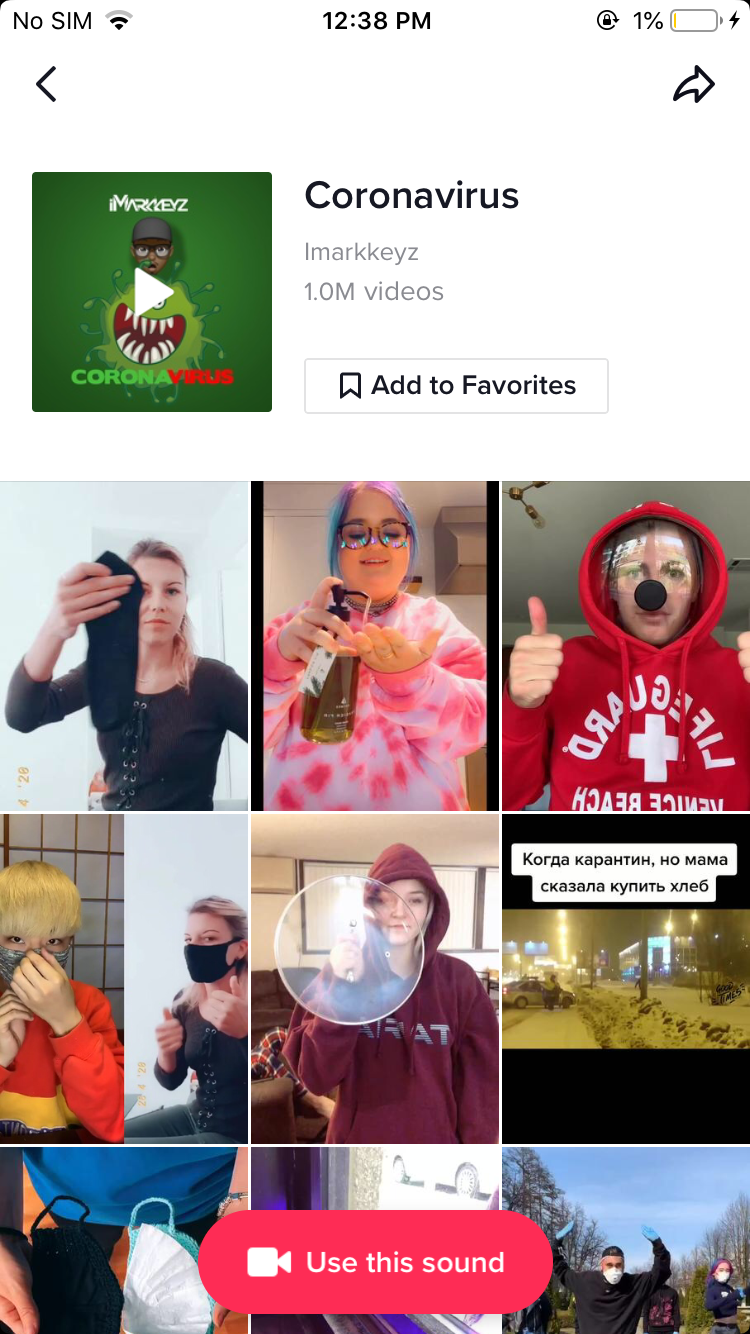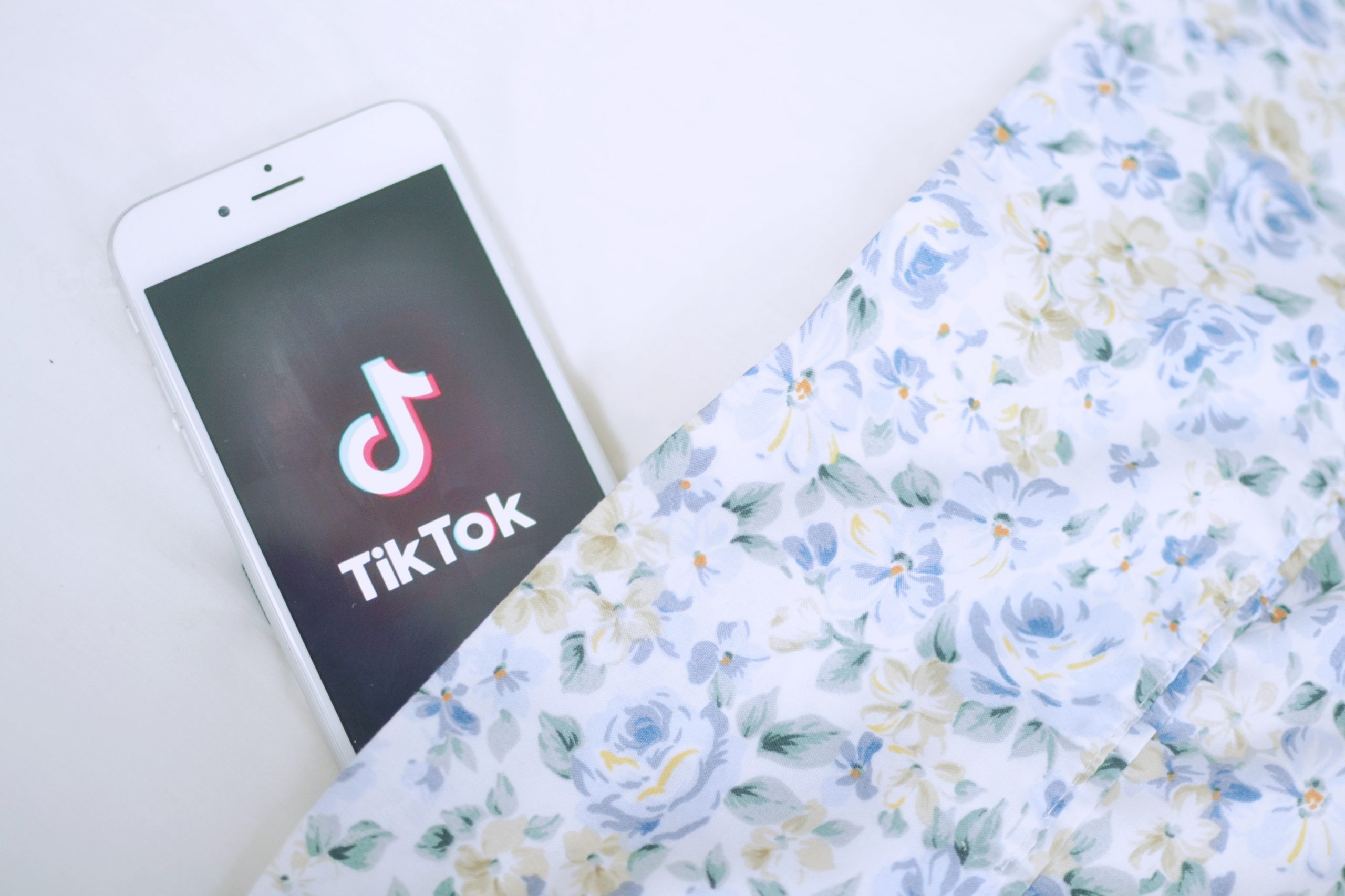Why TikTok Ain’t Your Average Corona Bae
Lately, I have been feeding on short videos to salvage the mundane and theatrical everyday life that I had always taken for granted until not long ago. It was the last thing I had asked myself to do heading into the COVID-19 crisis in March. But a yearning for the now disappearing public sphere tricks me to fall into the innocuous virtual rabbit holes every now and then. Solidarity had truly become digital during pandemic more than ever before, as zoomers and their grans, Hamptoners and essential workers, the Global North and the South were all tossed into a state of loss and listlessness. Still shattered, we found ourselves seamlessly integrated to a platformized Brave New World—because there is no way back.
@wobrunoI CAN’T GET THIS SHIT OUT OF MY HEAD ##coronavirus ##cardib ##virus♬ CORONAVIRUS wobruno – wobruno

Photo Credit: Yolanda Zhang
A classic coronavirus trope when the pandemic just began, featuring Cardi B’s meme-based soundtrack in the background.
“Amidst the boredom and stress of social distancing, TikTok understands that people need a moment to escape and simply be entertained,” said the tech company’s recent press release, which announced the launch of #HappyAtHome, a week-long live program featuring celebrities, millennial creators, and the World Health Organization.
The app, which had famously made Lil Nas X’s “Old Town Road” its way to Billboard last year, allows you to make 15-second videos using the soundtracks from what is already trending. But now, it is leading the digital frontline combating coronavirus and quarantine symptoms. It had encouraged stay-at-home video feeds like baking, cardio, and prom (and pillow-dance), and it had pledged more than $375 million to support crisis relief.
@danibozikmake grandma famous ##fyp ##foryou ##grandma ##foryoupage♬ Clap your hand – andyarthursmith
Some have invited family members for a moment of quarantine bonding.
@kelseysoundQuarantine Tik Tok Toe ##coronavirus ##socialdistancing ##quarantine ##diary ##quarantinelife ##quarantinesquad ##quarantineandchill ##coronachallenge♬ Classical Music – Classical Music
Others have been making new friends.
@iamtabithabrownCarrot bacon❤️ ##tabithabrown ##veganbacon♬ original sound – iamtabithabrown
41-year-old vegan vlogger Tabitha Brown shared a recipe of carrot bacon during her quarantine. She told VICE that veganism is not exclusive for white women who practice yoga but easy-to-make and affordable to all.
Unlike traditional social media, TikTok is widely known for making viral just the finest of ordinary talents, keeping celebrity influences and pre-established fanbase networks to a minimum.
“It simulates how human encounters naturally happen, (that is,) prior to the lockdown,” said Beichen Xing, a Chinese graduate student of Data Science in Worcester Polytechnic Institute, Massachusetts. “While being exposed to frequent life updates from your Facebook or Instagram friends can be overwhelming, watching strangers doing strange things on TikTok can be soothing and a genuine learning experience.”
But others remember TikTok differently. Jia Tolentino documented the video platform’s previous life as a tolerator of white supremacist content. “‘Good content’ [to TikTok] is anything that is shared, replicated, and built upon,” she said, concerned with the circulation of misinformation just a few months ago. It is uncertain if the current state of emergency had conveniently blinded us from the dark side of TikTok’s digital utopia.
Tolentino made a fair guess at the app’s algorithm, which is usually confidential across the industry. Like its Chinese doppelganger app Douyin [抖音, or “Swaying Sound”] run on separate servers, TikTok is owned by Zhang Yiming’s ByteDance company in Beijing. Zhang also operates Jinri Toutiao [今日头条, or “Today’s Headline”], China’s most-used news app notoriously known for its entirely customized, AI-based news sourcings. Zhang, a software engineer by training, is one among the advocates for a machine-learning future. But it is increasingly questionable if the same future will sustain the values we hold as a society.
“TikTok determines your keyword interests by collecting your user behaviors, such as the amount of time you spend on a given video feed,” said Xing. “Whenever it wants to predict the turnout of an upload, it will send the new video to a small batch of users matched with the video’s self-reported keywords. The longer you spend watching it, the higher the chance the given video will be later circulated to larger crowds until viral. You are essentially ‘recruited’ as testing machines, optimizing the platform for its programmers.”
What we previously thought was free entertainment, proves to be, in a way, unconditional offering of free labor. It is spent toward an increase of revenue that won’t be rationed back to us—except for a transient moment of laughter.
@j0rdanclarks0nHe thought it was sweet ##dogs ##lovedogs♬ Patatak – mihnea.craciun
“Videos, once uploaded, will no longer be in our own controls,” Xing went on. “Keywords are optimized and sometimes rephrased based on user feedback, too. This can get tricky, for example, when you represent a minority. You can share something from your culture, but it, in turn, can get misunderstood and mislabelled by the general public.”
Most horrendously, the app monitors not just keywords but also visual cues and images. An Intercept investigation report that came out in March reveals how the TikTok moderators in China (Douyin) were instructed to suppress posts created by users “deemed too ugly, poor, or disabled for the platform.”
“Facial recognition and skin tone recognition are commonly used over all platforms. You feed your computer certain images, and you program some to be scored higher and others lower. This could include facial features and body types,” said Shayan Jared, a graduate student working and studying at Tandon School of Engineering, New York University.
Good-looking Douyin (Chinese TikTok) hosts like M-Ge can gain more 230 million likes on the platform. It is unclear whether the problem at hand simply pertains to discriminatory business conduct, or it further reflects the clashing of two social norms. The greater question to pose here would concern itself with the culture of conformity dominant in East Asia, be it the omnipresent practice of plastic surgery or the common association of poverty with lack of perseverance.
Fortunately, TikTok’s LA-based localization team responsible for the US app has been working to eliminate racial biases and beauty standards from the previous algorithms (remember that TikTok and Douyin operate somewhat as different entities, though identical in functions). The app could still be taken as a breeding ground for political cults like Alt-Right—as Tolentino noted—especially when the rest of us would rarely bump into them in our own individually tailored feeds. But the company had already by last year committed to ban political ads, signaling a good start.
Yet, the current public opinion seems to have other priorities. According to May data from Sensor Tower, the short-video sharing giant just hit more than 2 billion downloads, with another 50% surge in user reviews. It is unsure whether TikTok avows to unite us, or divide us even more, by the end of the pandemic.
@justmaikoour performances be so good, its scary???????? @javierr♬ Hips Don’t Lie – soymiguelgon
Driven by temptations, I once again tap into the app with the finest of my muscle memory. The mini-videos, free of gratuitous post-productions, start streaming automatically like therapies. They are unabashedly fun, bare, and honest. It oddly reminds me of the familiar subway artists with their props, adding highlights to my long day on a crowded Manhattan train before the next station hits. If this is what I’ve been really missing, just imagine how much I wish the current crisis to be over soon.

